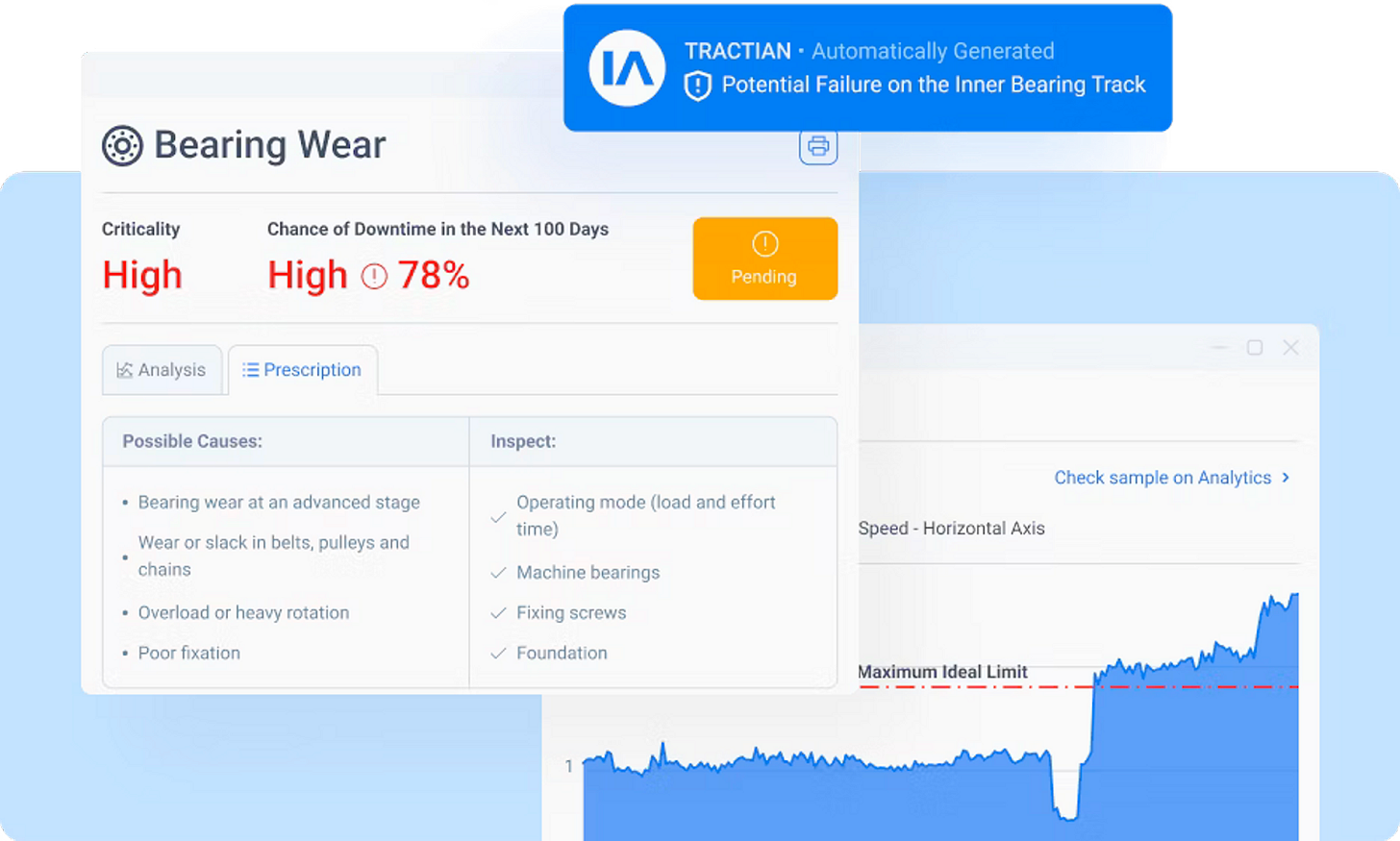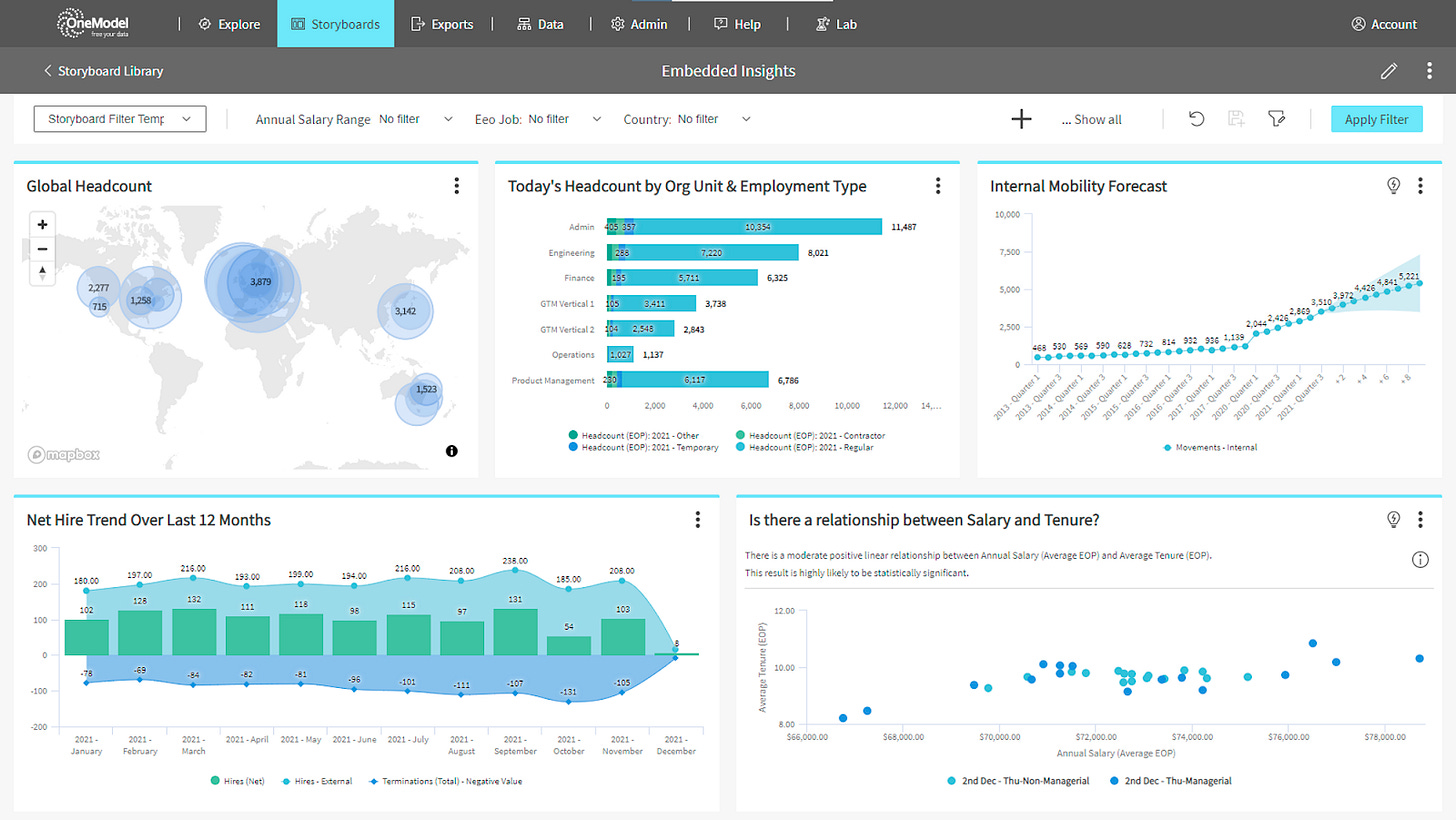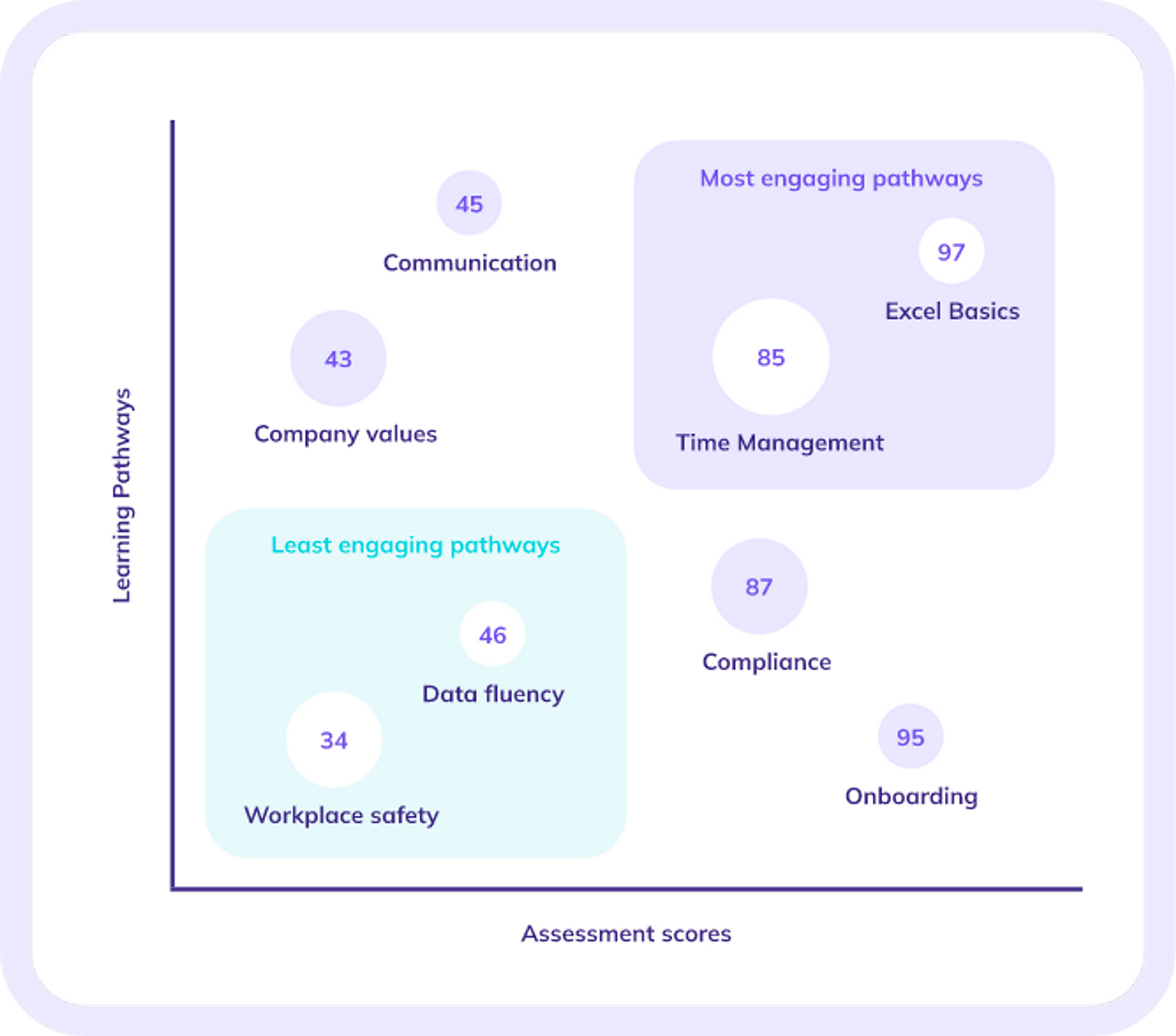Meta is hedging its bets on AI advertising
OpenAI introduced a mechanism to block its GPTBot web crawler
⚡ Today’s Highlights
📰 News: Meta is hedging its bets in AI advertising + OpenAI introduced a mechanism to block its GPTBot web crawler
💰 Funding: Tractian, One Model, Disprz, Gomboc.ai, Skyline Robots, Multiplayer, and Satim
🌎 Content: At ‘The Impact of chatGPT talks’ event at MIT, Max Tegmark broke down how AI systems could be kept under control using Artificial Neuroscience as well as the specific role physics could play in it
📰 Today's Top Stories
Meta's big AI play: Shoring up its ad business
(5 min read) (Source: Axios)
TLDR: After experiencing its first annual revenue drop last year, Meta turned to AI in a big way to boost its core advertising business, moving past the buzz around its open-source AI model, Llama, and the metaverse. It’s paying off.
In response to challenges posed by changes to Apple's privacy policies, Meta developed AI-enhanced advertising tools like Advantage+ to streamline the ad creation process, while also using AI for content recommendations.
Justin Osofsky, Meta's head of online sales, highlighted the vast adoption of AI-based advertising tools by Meta's advertisers, with a significant emphasis on the Advantage+ system to drive automation and optimization for their customers, resulting in consecutive quarters of revenue growth.
While Meta plans to introduce AI agent personas to encourage user engagement, there's a noted absence of a long-term AI product plan, with Mark Zuckerberg emphasizing the introduction of new AI tools but expressing uncertainty on future capital expenditure for AI products.
The Big Picture: Meta's pivot towards AI for short-term revenue recovery highlights the technology's crucial role in adapting to industry challenges and shaping the future of advertising.
Now you can block OpenAI’s web crawler
(3 min read) (Source: The Verge)
TLDR: OpenAI introduced a mechanism for website administrators to block its GPTBot crawler from gathering data, which aids in training GPT models, by modifying the site's Robots.txt file or blocking the crawler's IP address.
Despite the ability to block GPTBot, content previously gathered won't be retroactively removed from ChatGPT's training data. OpenAI's data collection for AI training, like other AI companies', remains ambiguous, raising issues regarding data sourcing from social media, copyrighted materials, and other online content.
Platforms like Reddit and Twitter have sought to limit the unfettered utilization of user data by AI organizations. Others have filed lawsuits over unauthorized data use, while lawmakers have scrutinized data privacy and consent issues in AI regulatory hearings.
The Big Picture: OpenAI's move to allow websites to block its crawler reflects the broader tech industry's grappling with data privacy concerns, intellectual property rights, and the need for transparency in AI training data sourcing, pivotal issues for startups and investors alike.
Microsoft’s AI-powered Bing Chat is coming to mobile browsers
(3 min read) (Source: Bing Blog)
TLDR: Microsoft is broadening the reach of its ChatGPT-like "Bing Chat" by testing and planning its release on third-party browsers such as Chrome and Safari, both on web and mobile devices.
Bing Chat showcases AI-powered features like summarized answers and image creation. However, while compatible with third-party browsers, Microsoft emphasizes an optimal user experience on its Edge browser, which supports longer chats and greater character counts.
An exact launch date for third-party browser support for Bing Chat was not provided, but the feature is said to be arriving soon.
Zoom says its new AI tools aren’t stealing ownership of your content
(5 min read) (Source: The Verge)
TLDR: Zoom's Chief Product Officer, Smita Hashim, clarified in a blog post that the company doesn't train AI models on users' audio, video, or text without their consent. Customers maintain ownership and control of their content.
Scrutiny arose after a Stack Diary report highlighted changes in Zoom’s terms, which seemed to grant the company expansive rights over user data for AI processing.
Zoom has been promoting new AI-driven features, such as AI summaries for missed meetings and AI-assisted messaging in its Team Chat app. Hashim emphasizes a transparent consent process when these features are engaged.
Changes in Zoom's terms of service mirror those in other tech giants like Google, which recently updated its privacy policy regarding AI training using data from public internet sources.
The Big Picture: As AI integration deepens in communication tools, balancing user privacy and technology advancement remains crucial. In the current, murky regulatory environment around AI, the tech industry's approach to data handling, especially in the realm of AI, is not just a technological concern but a pivotal ethical and societal one, demanding transparency and user empowerment.
👀 More Reading:
From the 'godfathers of AI' to newer people in the field: Here are 16 people you should know — and what they say about the possibilities and dangers of the technology. (Business Insider)
Will AI be an economic blessing or curse? History offers clues (Reuters)
Pregnant woman arrested after facial recognition tech error (Popular Science)
Here Comes the Second Year of AI College (The Atlantic)
We Need Smart Intellectual Property Laws for Artificial Intelligence (Scientific American)
Microsoft’s AI Red Team Has Already Made the Case for Itself (WIRED)
💰 Funding Alerts
1. Tractian is a leader in industrial IoT and enterprise asset management software that utilizes AI and sensors to monitor critical machines and prevent unplanned downtime. They raised a $45M Series A1 round.
Their solution provides comprehensive oversight to maintenance technicians and industrial decision-makers.
Round led by General Catalyst (Trevor Oelschig, Managing Director) with participation from Next47 (Debjit Mukerji, Partner), Innospark Ventures, Fellows Fund, Pioneer Fund, and strategic angels such as Ronan de Hooge, Ron Gill, and Andy McCall.
Funding is for rapidly scaling customer enablement and investing in new technology innovation for its maintenance operators.
2. One Model, a leading people analytics software company utilizing AI+ML to provide organizations with advanced analytics capabilities and data orchestration, raised a $41M round.
One Model enables data-driven decisions and optimized talent strategies using their workforce data.
Round led by Riverwood Capital (Francisco Alvarez-Demalde, Co-Founder and Managing Partner).
Funding is for maintaining One Model's growth trajectory, accelerate the development of their People Data Cloud™ platform, and enhancing One AI.
3. Disprz is an AI-powered learning and skilling suite, providing a B2B SaaS approach to equip the workforce with skills using Generative AI and offering Learning Management System and Learning Experience Platform solutions. They raised $30M Series C.
Round led by Lumos Capital (Rohan Wadhwa, Managing Director) and 360 ONE Asset (IIFL), with participation from Kae Capital, KOIS, & Dallas Venture Capital.
Funding is for global market expansion, product development with Generative AI, and new strategic partnerships beyond current industry leaders like Thrasio, Amazon, Mint Dentistry, & others.
4. Gomboc.ai, a deterministic AI-powered cloud infrastructure remediation platform, raised over $5M in a seed round.
Gomboc.ai provides precise and secure Infrastructure as Code using its AI engine trained on major cloud service providers' data.
Round led by Glilot Capital (Kobi Samboursky, Managing Partner) and Hetz Ventures (Pavel Livshiz, General Partner), with participation from strategic angel investors.
Funding is for accelerating product development and establish a go-to-market strategy to meet demand.
5. Skyline Robotics has developed OZMO, a high-rise window-cleaning robot that utilizes AI, ML, computer vision, advanced robotics, and sensors to address industry challenges like labor shortages and worker safety. They raised $3.35M through a SAFE Note.
Funding is for worldwide expansion, with robots already deployed in New York City and go-to-market strategies being implemented for major cities globally.
6. Multiplayer, a developer tool that enhances distributed software development by providing an AI-powered, collaborative and visual platform for managing complex system architectures, raised $3M in funding.
Round led by Bowery Capital, with participation from Okapi Venture Capital, Mitch Wainer (cofounder of DigitalOcean), and Edith Harbaugh (founder of LaunchDarkly).
Funding is for further developing Multiplayer's AI Assist feature, enabling comprehensive component generation for distributed software development. Additionally, the funds will support the platform's continued growth and expansion to meet the evolving needs of development teams.
7. Satim, a Poland-based provider of AI-based software for automatic object detection, identification, and classification using satellite synthetic aperture radar (SAR) imagery, raised $2M in funding.
Round led by Cultivation Capital, with participation from Verissimo Ventures, The Flying Object, Everywhere Ventures, Hustle Fund, StartupIst Ventures, and an undisclosed investor from Eastern Europe.
Funding is for enhancing its AI technology and capabilities for automatic object detection and classification using satellite SAR imagery. The investment will support the company's efforts to advance its algorithms and expand its applications across various industries.
🌎 Fresh Content
1. Max Tegmark, physicist, cosmologist, machine learning researcher, professor at MIT, and the president of the Future of Life Institute, recently spoke at ‘The Impact of chatGPT talks’ event at MIT.
He covered how AI systems can be kept under control through mechanistic interpretability, and the specific role that physicists can play in helping.
Mechanistic interpretability can be thought of as Artificial Neuroscience, aka understanding how AI systems work within their black box.
2. If you’re looking for a great back to basics overview of the entire AI revolution, Cleo Abram, formerly of Vox, has you covered.
She covers everything including:
What is AI? Why is everyone jumping on the bandwagon now? Why is AI dangerous? How could AI destroy our species and should we slow it down? Why do we want AI? And What has AI already accomplished?






